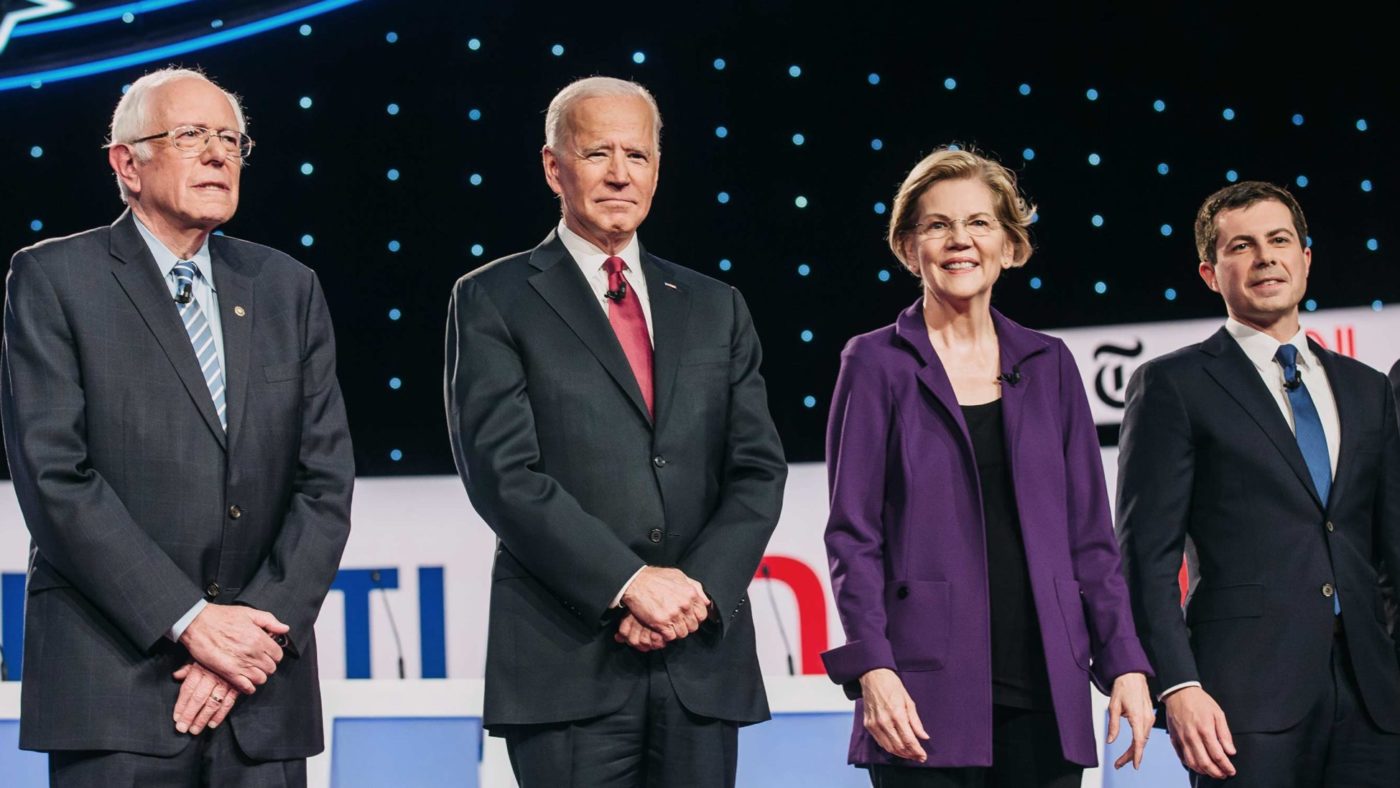Each of the three leading candidates in the race for the Democratic Party’s presidential nomination entered last night’s televised debate — the fourth such event — facing a big, unanswered question. Their answers were a reminder that they are still a long way from the finish line.
It was the first debate since the announcement of the start of an impeachment inquiry into Donald Trump. And so for former Vice President Joe Biden, the question was how he would manage the unsubstantiated claims about his son Hunter’s business interests in Ukraine that are part of that story.
“My son did nothing wrong. I did nothing wrong,” said Biden, before veering off into the rolling hills of Biden-logue that leave you wondering whether another gaffe is around the corner — and whether, at 76, he is up to the challenges of the office he first ran for more than 30 years ago.
It was also the first debate since Massachusetts Senator Elizabeth Warren’s surge in the polls, which has brought her almost level with Biden. The Real Clear Politics poll average actually puts Biden on 29 per cent and Warren on 23, but some polls put her ahead, and that six point gap is more than made up for by the sense that Warren has momentum while Biden is faltering.
Evidently, that is how the other candidates see things. The focus of their attacks, often a little too premeditated and rehearsed to have the desired force, was overwhelmingly Warren, not Biden. It was confirmation that the progressive with a plan for everything has achieved frontrunner status. There may not have been any knockout blows, but the more heated exchanges were a sign of things to come. A candidate whose rise in recent months has been on the back of detailed plans on a range of policy areas gives her rivals plenty to aim at.
Bernie Sanders is the undisputed third-placed candidate, desperately trying to bridge the gap between the lead pair and the peloton; nearly ten points behind Biden and Warren, and ten points ahead of the rest. The question for him was arguably the most daunting: was he still a fully fledged candidate after suffering a heart attack just a few weeks ago?
The 78-year-old’s feisty, spirited performance over three hours of debate was an emphatic answer in the affirmative. That ‘yes’ was underlined by the news, timed to coincide with the end of last night’s debate, that Alexandria Ocasio-Cortez, the social-media savvy darling of the American left, will endorse Sanders at a large rally in New York this weekend. The event is set to be an electric reminder that things are far from over — and that Warren cannot necessarily count on hoovering up left-wing votes to surge past Biden.
Take a step back from the guessing game of who the Democrats will eventually select as their nominee, however, and a broader point comes into focus. Understandably, much has been made of the party’s leftward shift. And while last night made clear how far the party’s centre of gravity has moved, more stark was the reminder that declinism remains the order of the day in American politics.
Big foreign policy issues receive remarkably little attention. In debate after debate, Democratic candidates have nothing to say on China. Last night may have featured denouncements of Donald Trump’s disgraceful withdrawal from Northern Syria, but the strategic view shared by the majority of the candidates was summarised glibly by Warren: “I wanna get out of the Middle East”. 2020 will be the fourth successive presidential election in which retreat from the world stage is the prevailing geopolitical view.
Meanwhile, the domestic policy debate remains woefully zero-sum: last night included detailed discussion of how to pay for healthcare, whether or not billionaires should exist, whether the most successful US companies of the last decade should be broken up, whether a universal basic income is preferable to a federal jobs guarantee. How to create greater prosperity simply isn’t part of the Democratic conversation. The only candidate to even mention economic growth was Tom Steyer, a billionaire who all but bought his place on the stage.
Biden eschews much of this in tone if not substance. In his closing statement last night, he sought to strike an upbeat note: “Folks, it’s time we stopped walking around with our heads down. We are better positioned than any country in the world to own the 21st century. So for God’s sake, get up. Get up and remember, this is the United States of America. There’s nothing, nothing we’re unable to do when we decide we’re going to do it. Nothing at all. Period.”
But the septuagenarian’s future-facing call to arms was more than a little sepia-toned — and may yet prove to be at odds with an angry electorate hungry for villains to blame. Like Trump, Warren and Sanders are more than happy to point the mob in the right direction.
CapX depends on the generosity of its readers. If you value what we do, please consider making a donation.


